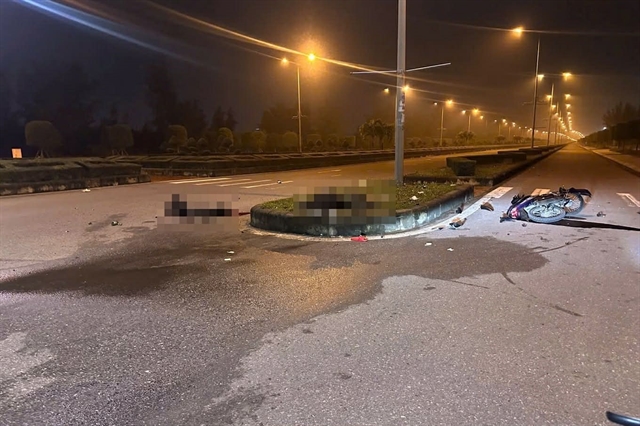

Recently, golf social media in Vietnam has been buzzing about “Slow Play” in Vietnam and how to combat it. They are also quacking again about caddie performance and fees again. In some ways, these two seemingly different subjects go hand in hand.

|
By Robert Bicknell
Recently, golf social media in Việt Nam has been buzzing about “Slow Play” in the country and how to combat it. They are also quacking again about caddie performance and fees again. In some ways, these two seemingly different subjects go hand in hand.
The Golf governing bodies (R&A / USGA arbitrarily decided that that the average time to finish 18 holes should be roughly Four hours and Fifteen minutes (4:15), and most countries follow this guidance as gospel. However, when you’re playing golf where temps can easily hit 36-41 (or even 45 in Thailand, etc) life slows down.
The physical act “playing golf” only takes about one hour for a four players shooting 100. All the rest of the time is walking / riding to the ball, lining up shots, etc., so there are things that can be done to speed up the game.
I will ignore the fact that golf course designers have been making their designs harder and harder, trying to compete with each other for the most dramatic and challenging design. This has led to some very ridiculous layouts which, in addition to being no fun to play, results in very slow golf, and only focus on already built courses in Việt Nam which are notoriously slow – without name shaming them, but everybody knows who they are.
Problem # 1 – They book groups too close together in hopes of squeezing in more rounds and making more profits. This actually slows things down.
Problem # 2 – They want players to use buggies, but keep them on the cart paths. This actually adds 20-30 minutes to each round. However, clubs can lessen this by marking the cart paths to show yardages from certain points to allow players to accurately decide what clubs they need ahead of time. Marking sprinkler heads helps a lot too.
For the record, allowing buggies on fairways speeds up play dramatically and it doesn’t have to hurt the grass. Golf cars have special low pressure tires which are built to go on grass without destroying it. If a cutting machine can go out to work, so can a buggy. I would emphasize that this is only during the dry season, not rainy season. Once the rain starts, keep it on the path. Other common buggy rules are “keeping the buggy in the rough and only crossing a fairway at 90-degree angles”. This works too.
The main thing is that the club has to insure the drainage system is correct. Far too many clubs either skimped on building a correct drainage system, or haven’t maintained it properly. Proper drainage will save the owner money in the long run by having fewer non-playable days and fewer diseases on the turf.
Problem # 3 – Players take forever to clear the greens… this is because of two related reasons: a) They’re betting and sweating over a 3-foot putt; b) They pay their bets before leaving a green.
Look, if you take too long over a putt, you’re probably gonna blow it from thinking too much and starting to see things that aren’t there. If your caddie says “Left inside,” then aim left inside or left centre and hit the damn thing.
Secondly, it used to be that bets were calculated and paid once back inside the clubhouse over a nice, cold beer, but for some reason the idea of paying off each hole before leaving the green has become popular. Unfortunately, it slows down the game.
So, get OFF the green and pay at the next tee box instead.
Caddies are supposed to keep the groups moving, but players almost never listen to the caddie, except to blame them for a wrong club, taking too long and giving the player the wrong line.
So, some players want to play without a caddie, which is frightening to think about…
Most players in Việt Nam would never even think about fixing a pitchmark, a divot or raking a bunker, so can you imagine the golf course conditions after six months? Sure, the players will complain to management about it, without ever considering that they are to blame.
Yes, eventually, the players would begin to do things themselves, but it will be hell out there until things stabilize.
Bottom line, the easiest way to speed up play is to stop thinking too much. VNS




